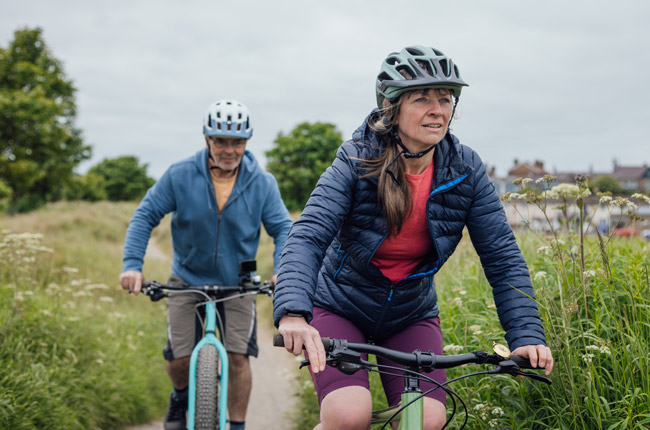In partnership with the British Dietetic Association (BDA) Oncology Specialist Group and the National Institute for Health and Care Research’s (NIHR) Cancer & Nutrition Collaboration, the one-of-a-kind online resource comprises a database of answers to common FAQs people have about diet, nutrition and other lifestyle factors following a cancer diagnosis.
These range from how to deal with and manage some of the common side-effects of cancer treatment, whether a vegan diet can delay cancer growth, to how important protein is, and how safe it is to exercise during cancer. The freely accessible content has been reviewed by a number of experts, ensuring that the advice and information contained in the FAQs is evidence-based.
According to a poll of 1,127 people affected by cancer commissioned by WCRF, over one in two (55%) respondents said neither they nor their family member received any dietary guidance or advice after diagnosis. Only 28% received appropriate support.
WCRF and its partners will continue to develop new and review existing content as it builds up its bank of available FAQs. The aim is for health professionals to begin to signpost cancer patients to the new content. Patients and carers will also be able to locate the FAQs directly, via Google searches.
Comments on the new FAQs
Rachael Gormley, Chief Executive at World Cancer Research Fund, said:
Following a diagnosis of cancer, it can be a postcode lottery as to the sort of dietary advice someone is likely to receive from a healthcare professional. It’s also really challenging to navigate all the information about diet that’s out there, even with support from a professional like a dietitian. We’re here to help with an accessible, easy-to-use resource which answers all the key questions people may have about what to eat following a cancer diagnosis and how to deal with certain side effects of treatment, such as taste changes.
Loraine Gillespie, Chair of the BDA Oncology Specialist Group, said:
As oncology dietitians we know how many myths circulate about diet and cancer creating confusion for people. This evidence-based resource will be invaluable for patients and health professionals alike.
Professor Emeritus Sam H Ahmedzai, Chair of the NIHR Cancer & Nutrition Collaboration, said
We are delighted to have worked with our partner WCRF over the past year to bring out this amazing new resource for people – patients and their families – affected by cancer. Our remit is to improve the scientific evidence underpinning healthy eating and physical activity for cancer patients at all stages. This new digital hub will now reach out this evidence base to many more people, including health professionals.
About the FAQs
The content for the FAQs originated from Wereld Kanker Onderzoek Fonds (WKOF), part of the WCRF International Network.
There are more than 40 FAQs available, covering a range of topics related to diet, nutrition, and physical activity while living with and beyond cancer.
Over the next 6-12 months, WCRF will gather user feedback to evaluate and enhance the information it is offering those living with cancer (and their families), and aims to add further FAQs over time to ensure that it provides the most valuable advice and information needed.



